
At around midday on 19 August 1949, wreathed in thick mist, a British European Airways DC-3 going from Belfast to Manchester flew into a hillside on Saddleworth Moor in the Peak District, near Oldham. All the crew and 21 of the 29 passengers died on impact or soon afterwards. Eight passengers survived, including a young boy and his parents, although, devastatingly, their younger child was one of the fatalities. That surviving boy became my friend and statistical colleague, Prof Stephen Evans.
I think we would agree that Stephen was lucky. But what do we mean by "luck"? We might say that someone has been lucky, or unlucky, if they have benefited or been harmed by something that was unpredictable and beyond their control. Luck has been called "the operation of chance, taken personally".
Luck comes in three main flavours. Philosophers have identified "circumstantial luck", meaning being in the right place at the right time, or the wrong place at the wrong time - such as Stephen's family taking that particular flight. Then there's "resultant luck", where in a particular situation some people have good and some have bad outcomes due to factors beyond their control. Stephen had the good resultant luck of surviving.
But perhaps the most important is "constitutive luck", which covers all the fortunate or unfortunate circumstances of your very existence; the period of history in which you were born, your parents, background, genes and character traits. So where was Stephen's constitutive luck? He told me that his father's experiences in the RAF led him to insist that the family sat at the back of the plane- and the only survivors were seated at the back. He had the right parents.
This story is from the {{IssueName}} edition of {{MagazineName}}.
Start your 7-day Magzter GOLD free trial to access thousands of curated premium stories, and 9,000+ magazines and newspapers.
Already a subscriber ? Sign In
This story is from the {{IssueName}} edition of {{MagazineName}}.
Start your 7-day Magzter GOLD free trial to access thousands of curated premium stories, and 9,000+ magazines and newspapers.
Already a subscriber? Sign In

Friendship interrupted
They were best mates. Then one had a baby, while the other struggled to conceive. They share their brutally honest takes on what happens when motherhood affects friendship
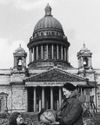
KERNELS OF HOPE
During the siege of Leningrad, botanists in charge of an irreplaceable seed collection, the first of its kind, had to protect it from fire, rodents-and hunger

A new horizon' The inverse link between cancer and dementia
Scientists have long been aware of a curious connection between these common and feared diseases. At last, a clearer picture is emerging

Across the universe
Samantha Harvey won the Booker prize with a novel set in space. Yet, she says, Orbital is actually 'a celebration of Earth's beauty with a pang of loss'
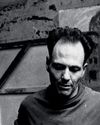
Frank Auerbach 1931 -2024
Saved from the Holocaust, this artist captured the devastation of postwar Britain as ifits wounds were his own but he ultimately found salvation in painting
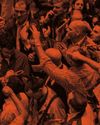
Seven lessons I've learned after 28 years as economics editor
Margaret Thatcher was Britain's prime minister and Neil Kinnock was leader of the Labour party.

Droughtstricken dam leaves economies powerless
A ll is not well with the waters of Lake Kariba, the world's human-made lake largest A punishing drought has drained the huge reservoir close to record lows, raising the prospect that the Kariba Dam, which powers the economies of Zambia and Zimbabwe, may have to shut down for the first time in its 65-year history.
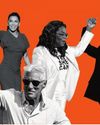
Let this be the end of these excruciating celebrity endorsements
I wish celebrities would learn the art of the French exit. But they can't, which is why Eva Longoria has announced she no longer lives in America. \"I get to escape and go somewhere,\" she explained.
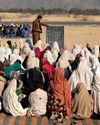
Alive, but unable to thrive under absolute patriarchy
Since the Taliban returned to power, women and girls have tried defiance, but despair at their harshly restricted lives
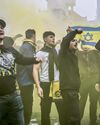
‘It's tragic’ Reflection in the wake of Amsterdam violence
Carrying signs scrawled with messages urging unity, they laid white roses at the statue of Anne Frank, steps away from the home where her family had hidden from Nazi persecution.